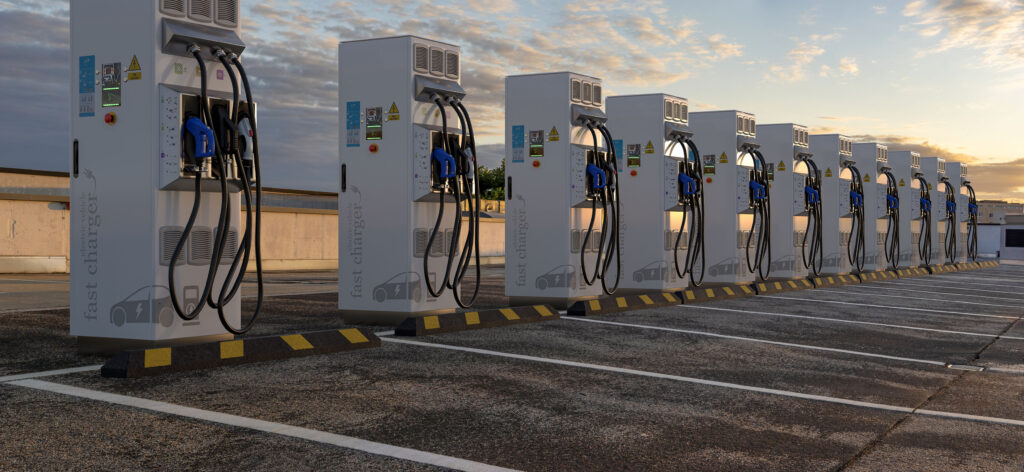By Guillaume Gerondeau, Vice President, Transportation & Mobility Industry Asia, Dassault Systèmes
Indonesia, renowned for its biodiversity and vibrant culture, is grappling with greenhouse gas emissions and climate change vulnerabilities. However, its government is addressing these challenges by actively incentivizing electric and hybrid vehicle adoption.
A comprehensive approach is vital to address these challenges, involving improved public transportation, corporate social responsibility, technological innovation, and data integration. By embracing sustainable transportation, Indonesia aims to enhance safety, air quality, and the overall quality of life in cities like Nusantara, its envisioned new capital.
Addressing emissions and climate vulnerability
“Indonesia recognizes the environmental challenges it faces, including significant greenhouse gas emissions and vulnerability to climate change.”
Urgent action to reduce emissions is crucial, considering the country’s exposure to rising sea levels and extreme weather events.
To tackle these challenges, the Indonesian government has adopted a multi-faceted approach. This approach includes policy interventions, infrastructure development, and technological advancements aimed at promoting sustainable transportation solutions.
Government incentives and electric mobility roadmap
In December 2022, the Indonesian government introduced incentives to promote the adoption of electric and hybrid vehicles, including converting motorcycles to electric power. These incentives build upon the 2019 roadmap aiming to transition to electric mobility with locally produced components.
The Indonesian government’s goal is to have 750,000 electric cars and 2.4 million electric motorcycles on roads by 2030. The incentives make electric vehicles more affordable and accessible, significantly reducing carbon emissions from the transportation sector.
Beyond electrification

Sustainable mobility extends beyond electric vehicles. Optimizing public transportation, especially during off-peak hours, is one of the government’s goals. The government seeks to reduce traffic congestion and individual vehicle usage.
The Indonesian government is also prioritizing investments in efficient public transportation to enhance accessibility, affordability, and reliability of buses, trains, and other modes of public transport. These improvements encourage sustainable commuting.
Furthermore, engaging corporations in sustainable commuting policies is essential, as they are accountable for employee-generated emissions (scope 3). Promoting telecommuting, carpooling, and flexible work hours supports Indonesia’s sustainability goals.
The role of data and virtual twins in sustainable mobility
“Leveraging data and virtual twins is imperative for a comprehensive mobility ecosystem. IoT objects can collect real-time data on traffic patterns, energy consumption, and air quality, forming a virtual twin of Indonesia’s mobility system.”
This virtual twin allows stakeholders to simulate and optimize transportation scenarios, and analyze connectivity among systems, vehicles, public transport, infrastructure and energy for sustainability.
In Nusantara, Indonesia’s new capital, the virtual twin guides the design of a sustainable transportation network. By modeling different scenarios, policymakers and urban planners can make informed decisions for a truly sustainable city.
Embracing sustainable mobility in future cities

Establishing Nusantara as Indonesia’s new capital city offers an opportunity to integrate sustainable mobility principles from the outset. By adopting an integrated approach to urban planning and transportation design, Nusantara can become a model for sustainable cities.
Nusantara can achieve seamless collaboration among transportation systems with the IoT-enabled infrastructure generating data and virtual twin technology, thereby optimizing traffic flow, reducing congestion, and minimizing emissions. Additionally, smart parking solutions and shared mobility services can further enhance transportation efficiency within the city.
Moreover, pedestrian-friendly infrastructure, dedicated cycling lanes, and green spaces can promote active modes of transportation and improve residents’ quality of life. By embracing a holistic and collaborative approach to sustainable mobility, Indonesia can lead the way towards a more environment-friendly transportation system.
The government’s commitment, along with stakeholders’ active involvement, can lead Indonesia towards a greener, sustainable future. Integrating IoT and virtual twins empowers cities like Nusantara to transform into thriving, sustainable urban centers, setting an example for global sustainable development.
Ultimately, anticipating the autonomous drive revolution while planning the infrastructure of the future is key to developing more livable and sustainable cities.
